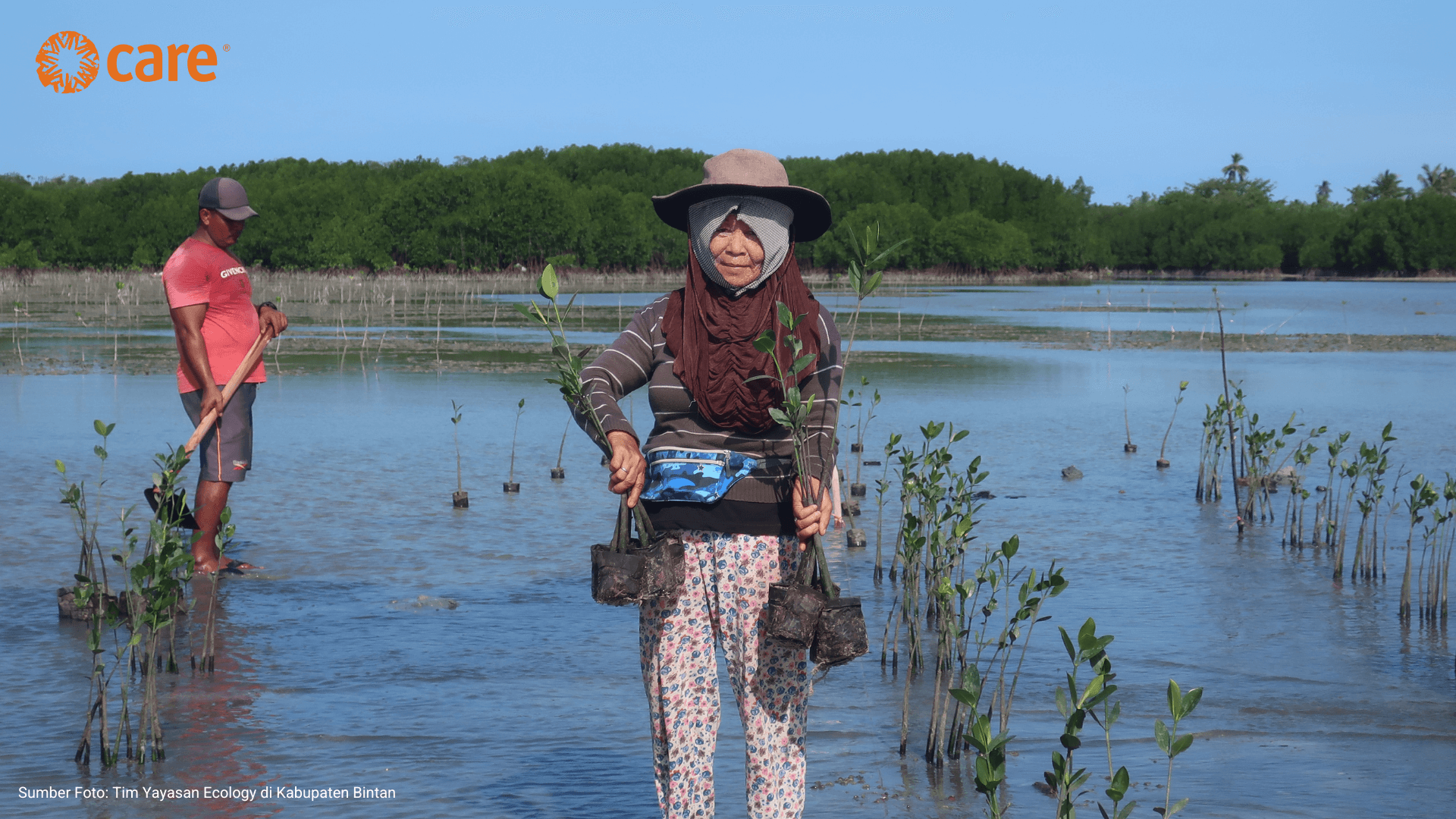Vivi Iswantari: We always excited to welcome villages cadres and village head every time they come to brought us meals and provided counselling to our family. It always make Talita eats eagerly.
Vivi Iswantari (25) from Dasan Anyar Village, West Sumbawa District, West Nusa Tenggara, couldn’t hide her joy seeing her first child, Talita Zahra, who is now 3 years old, playing happily with her friends in the yard of their modest home. Talita, her only child with her husband, Rony AR (39), was born with a normal weight of 2.5 kg and a length of 47 cm. She received exclusive breastfeeding.
Their happiness was disrupted. 5 day after Talita was born, she fell ill. “My child is suffering from Jaundice, so she needs to be hospitalized,” Vivi recalled the doctor’s words at that time. Vivi’s limited understanding of health prevented her from grasping the doctor’s explanation about her child’s illness. Vivi remembered she could only stand there, stared at her child sleeping pale with an IV drip on the bed.
Vivi recounted that Talita’s weight continued to decrease and she was frequently afflicted by illness, even experiencing shortness of breath at times. “I gave her meals frequently, but sometimes she refused to eat. Especially during the process of introducing solid foods, Talita struggled to eat, making her prone to flu, fever, and diarrhea,” she said. Furthermore, Vivi shared that she always took Talita to the Integrated Health Post (Posyandu) because Talita’s weight and height were not optimal according to her age category. “At the Posyandu, we receive additional food like biscuits, eggs, and green bean porridge, but Talita refuses to eat them. She prefers fruits and snacks,” she explained.
Vivi’s husband works as a freelance construction worker with an unstable income. “We struggle to meet Talita’s nutritional needs due to this limitation, resulting in Talita’s slow growth,” she expressed. Talita’s weighing in August 2022 showed that her height was not normal for her age, indicating stunting. “Her weight is very low, and her height is also short. The records in the Child Health Booklet showed that her weight has been below the Red Line for the past year,” Vivi shared.
Vivi’s spirit was reignited when her child received the Provision Additional Nutritious Meals. The meals was one of the activities in the accelerated stunting reduction program in West Sumbawa District (KSB), a collaboration program between PT Amman Mineral Nusa Tenggara, the KSB Government, and the CARE Peduli Foundation (YCP).
“This meals provision was incredibly beneficial for our family, especially for Talita. My child loves the diverse food options, including different fruits and vegetables every day. So, every day, she eagerly awaits the delivered meals,” Vivi said with enthusiasm. In addition to the meals provided, Vivi continues to fed Talita with various meals to enhance Talita’s appetite. After one month of receiving the Provision Additional Nutritious Meals, Talita’s weight increased by 400 grams.
Seeing the positive progress in Talita, Vivi actively became a Posyandu cadre. Despite having only completed high school, she was able to gain suitable health-related knowledge from numerous counselling sessions and sharing from the village cadres. She expressed her desire to gain more knowledge about child growth, including gender equality, which can contribute to reducing stunting, and to share this knowledge with other families with toddlers in her village.
The Women’s Empowerment and Family Welfare Group (PKK) of Dasan Anyar Village also expressed their appreciation for the Provision Additional Nutritious Meals (PMT) and stunting reduction program in their village. “The PMT has brought changes in the approach to accelerating stunting reduction,” said Ismaningsih (36), the Head of the PKK in Dasan Anyar Village. “We have received training for all cadres on stunting, clean water, and nutrition for toddlers. Therefore, when we are involved in the PMT program, we can easily provide counselling to families with stunting children and expected mothers with chronic energy conditions. The cadres are also taught to involve husbands in monitoring and actively participating in child development through gender equality training,” Ismaningsih concluded.

Writers: Muhammad Ikraman, Meiry Nasution
Editor: Swiny Adestika





